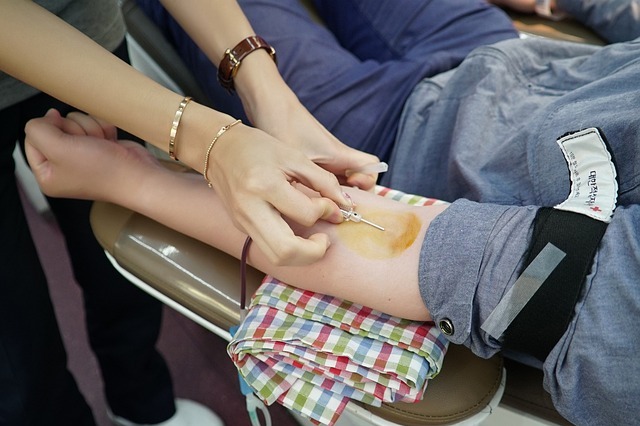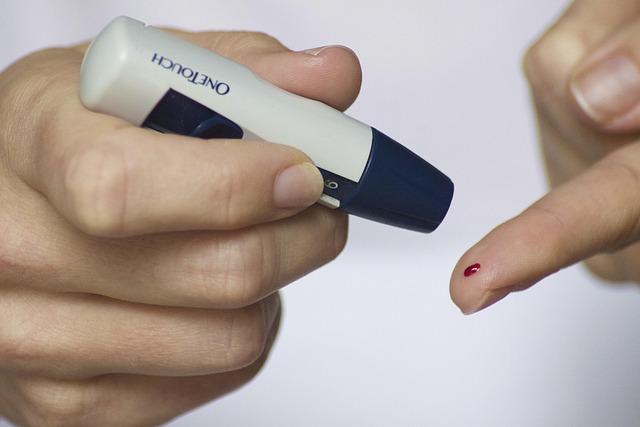Can Diabetics Donate Blood?

You’ve probably heard people say that if you have diabetes, you can’t donate blood. But here’s the truth — you actually can, as long as certain conditions are met. Both type 1 and type 2 diabetics are eligible to donate blood, provided their condition is well-managed and they meet a few specific health criteria. So if you’ve ever thought about giving blood but weren’t sure if your diabetes ruled you out, here’s everything you need to know.
First and foremost, your blood sugar levels need to be stable. For most donation centers, fasting blood sugar should ideally be under 140 mg/dL, and your HbA1c — a longer-term measure of blood sugar — should fall between 6.0% and 6.4%. If your levels are all over the place, it’s a red flag and could disqualify you, not just for the safety of the recipient but for your own health, too.
 The type of diabetes you have also plays a role. Those with type 1 diabetes are eligible to donate as long as their condition is under control and they’re not facing serious complications. Type 2 diabetics generally have more flexibility — if you’re managing your diabetes through diet, oral medications, or non-insulin injections, you're typically in the clear. However, if you're on insulin therapy, you may face some restrictions — especially if you've used bovine-derived insulin in the past, which is banned due to its link with diseases like mad cow.
The type of diabetes you have also plays a role. Those with type 1 diabetes are eligible to donate as long as their condition is under control and they’re not facing serious complications. Type 2 diabetics generally have more flexibility — if you’re managing your diabetes through diet, oral medications, or non-insulin injections, you're typically in the clear. However, if you're on insulin therapy, you may face some restrictions — especially if you've used bovine-derived insulin in the past, which is banned due to its link with diseases like mad cow.
It’s also important that your medications and dosage haven't changed recently. If you've adjusted your treatment in the past month, most doctors and blood donation centers will advise waiting at least four weeks before you donate. And if you're dealing with complications like neuropathy, retinopathy, kidney disease, or heart conditions, blood donation might not be safe for you at all.
Beyond diabetes-specific guidelines, you’ll also need to meet the general requirements for blood donation. This includes weighing at least 50 kilograms (or 110 pounds), having healthy hemoglobin and blood pressure levels, and feeling generally well on the day of donation.
If you are eligible, it’s still crucial to take the right steps before and after donating. Talk to your doctor first, just to be sure. Then make sure you get plenty of rest the night before, eat a proper meal, and drink enough water to stay hydrated. After donating, watch your blood sugar levels closely, rest if you feel tired, and eat something nutritious to help your body recover.
First and foremost, your blood sugar levels need to be stable. For most donation centers, fasting blood sugar should ideally be under 140 mg/dL, and your HbA1c — a longer-term measure of blood sugar — should fall between 6.0% and 6.4%. If your levels are all over the place, it’s a red flag and could disqualify you, not just for the safety of the recipient but for your own health, too.
 The type of diabetes you have also plays a role. Those with type 1 diabetes are eligible to donate as long as their condition is under control and they’re not facing serious complications. Type 2 diabetics generally have more flexibility — if you’re managing your diabetes through diet, oral medications, or non-insulin injections, you're typically in the clear. However, if you're on insulin therapy, you may face some restrictions — especially if you've used bovine-derived insulin in the past, which is banned due to its link with diseases like mad cow.
The type of diabetes you have also plays a role. Those with type 1 diabetes are eligible to donate as long as their condition is under control and they’re not facing serious complications. Type 2 diabetics generally have more flexibility — if you’re managing your diabetes through diet, oral medications, or non-insulin injections, you're typically in the clear. However, if you're on insulin therapy, you may face some restrictions — especially if you've used bovine-derived insulin in the past, which is banned due to its link with diseases like mad cow.It’s also important that your medications and dosage haven't changed recently. If you've adjusted your treatment in the past month, most doctors and blood donation centers will advise waiting at least four weeks before you donate. And if you're dealing with complications like neuropathy, retinopathy, kidney disease, or heart conditions, blood donation might not be safe for you at all.
Beyond diabetes-specific guidelines, you’ll also need to meet the general requirements for blood donation. This includes weighing at least 50 kilograms (or 110 pounds), having healthy hemoglobin and blood pressure levels, and feeling generally well on the day of donation.
If you are eligible, it’s still crucial to take the right steps before and after donating. Talk to your doctor first, just to be sure. Then make sure you get plenty of rest the night before, eat a proper meal, and drink enough water to stay hydrated. After donating, watch your blood sugar levels closely, rest if you feel tired, and eat something nutritious to help your body recover.